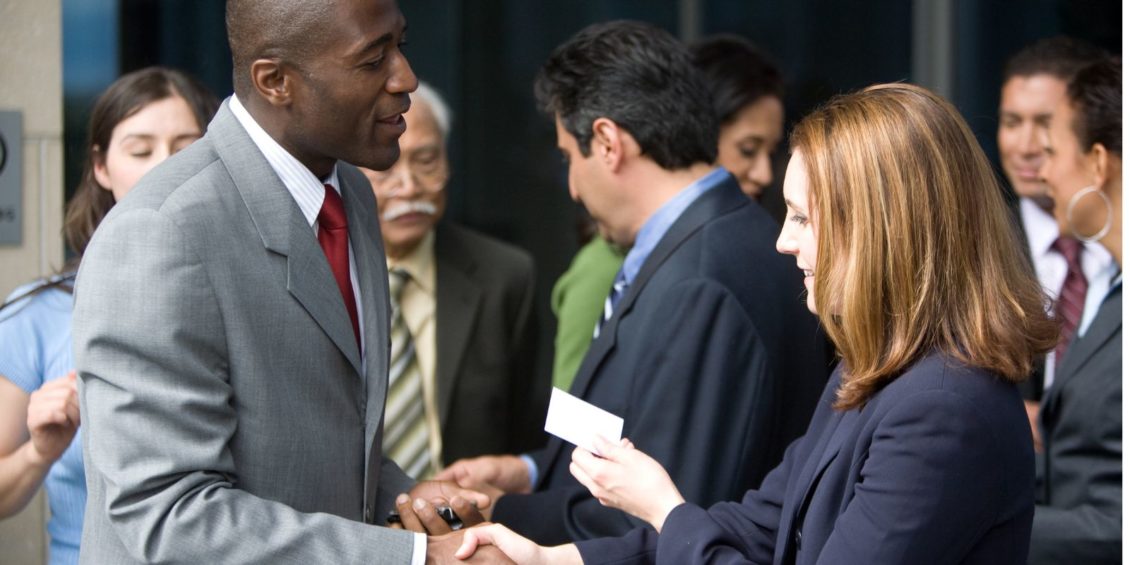Networking events can be a powerful way to bring people together, build relationships, and promote your business.
But organising a successful networking event requires careful planning, attention to detail, and a clear understanding of your goals and objectives. In this post, we’ll explore the key elements of organising a successful networking event, from defining your target audience to selecting the right venue and promoting the event.
Defining Your Target Audience
The first step in organising a successful networking event is defining your target audience. Who do you want to reach with your event, and what are their needs and interests? This will help you create a clear and compelling message for your event and tailor your approach to meet the needs of your audience.
Consider the following questions when defining your target audience:
- What industry or sector are they in?
- What are their job titles and responsibilities?
- What are their pain points and challenges?
- What do they hope to gain from attending your event?
Selecting the Right Venue
Once you have a clear understanding of your target audience, the next step is selecting the right venue for your event. Your venue should be accessible, convenient, and appropriate for your audience and message. Some factors to consider when selecting a venue include:
Location: Is the venue easily accessible by public transportation and car? Is it located in a convenient area for your target audience?
Size: Is the venue large enough to accommodate your expected number of attendees? Is it too large, which could create a sense of emptiness and affect the atmosphere of the event?
Amenities: Does the venue offer the necessary amenities, such as a projector, sound system, and WiFi? Are there food and beverage options available?
Atmosphere: Does the venue create the desired atmosphere for your event? Does it align with your brand and message?
Creating an Agenda
A well-designed agenda is essential to the success of your networking event. Your agenda should be clear, concise, and designed to meet the needs of your target audience. It should also include a mix of activities that balance education, entertainment, and networking opportunities.
Some elements to include in your agenda are:
- Welcome and introduction: This should be a brief introduction to the event and the organisers.
- Keynote speakers or presentations: These should be informative and relevant to your audience.
- Networking opportunities: This should include time for attendees to interact and connect with each other.
- Breaks: These should provide attendees with the opportunity to network and recharge.
Promoting Your Event
Promotion is key to the success of your networking event. You need to reach your target audience and encourage them to attend. Some event promotion strategies to consider include:
- Social media: Use social media platforms, such as Twitter, Facebook, and LinkedIn, to promote your event and engage with your target audience.
- Email marketing: Use email marketing to reach out to potential attendees and provide them with the information they need to attend.
- Partnerships and collaborations: Consider partnering with other organisations or influencers in your industry to promote your event and reach a wider audience.
- Public relations: Consider issuing a press release or contacting local media outlets to promote your event.
Logistics Considerations
Some of the key logistics considerations to keep in mind when organising a networking event include:
- Registration: Will attendees need to register in advance, and if so, how will you manage the registration process? Will you use an online registration platform or handle registrations manually?
- Transportation: Will you need to arrange transportation for attendees, such as a chauffeur service or parking? If so, make sure to provide clear information on transportation options and any associated costs.
- Accommodation: If attendees are coming from out of town, will you need to arrange accommodation for them? If so, consider partnering with local hotels or other accommodation providers to offer discounted rates for attendees.
- Catering: Will you be providing food and drinks for attendees? If so, consider dietary restrictions and preferences, and provide a range of options to accommodate different needs.
- Equipment and Supplies: Will you need to rent equipment, such as audio-visual equipment or furniture, for your event? If so, make sure to arrange this well in advance to ensure availability.
- Staffing: Will you need additional staff to help with the event, such as registration staff, event coordinators, or security personnel? Make sure to plan for staffing needs well in advance and consider outsourcing to a professional event management company if needed.
Effective logistics planning is essential to ensure that your event runs smoothly and that your attendees have a positive experience. By considering these logistics considerations, you can ensure that your event is well-organised and that your attendees feel well taken care of.
Ensuring Security and Protection
As you organise your networking event, it’s important to keep security and protection in mind. This includes protecting the personal information of attendees, ensuring the safety of the event, and protecting your own business interests.
Some security and protection measures to consider include:
Data protection: Ensure that you’re collecting and storing attendee data securely and in compliance with relevant laws and regulations.
Physical security: Consider hiring security personnel or implementing other measures to ensure the safety of your event.
Liability insurance: Consider obtaining liability insurance to protect your business in the event of any accidents or incidents that may occur during the event.
Wrapping Up
Organising a successful networking event takes time, effort, and attention to detail. By defining your target audience, selecting the right venue, creating a compelling agenda, and promoting your event effectively, you can ensure that your event is a success.
And by keeping security and protection in mind, you can protect your business and ensure that your attendees have a safe and enjoyable experience.








Leave a Reply
View Comments